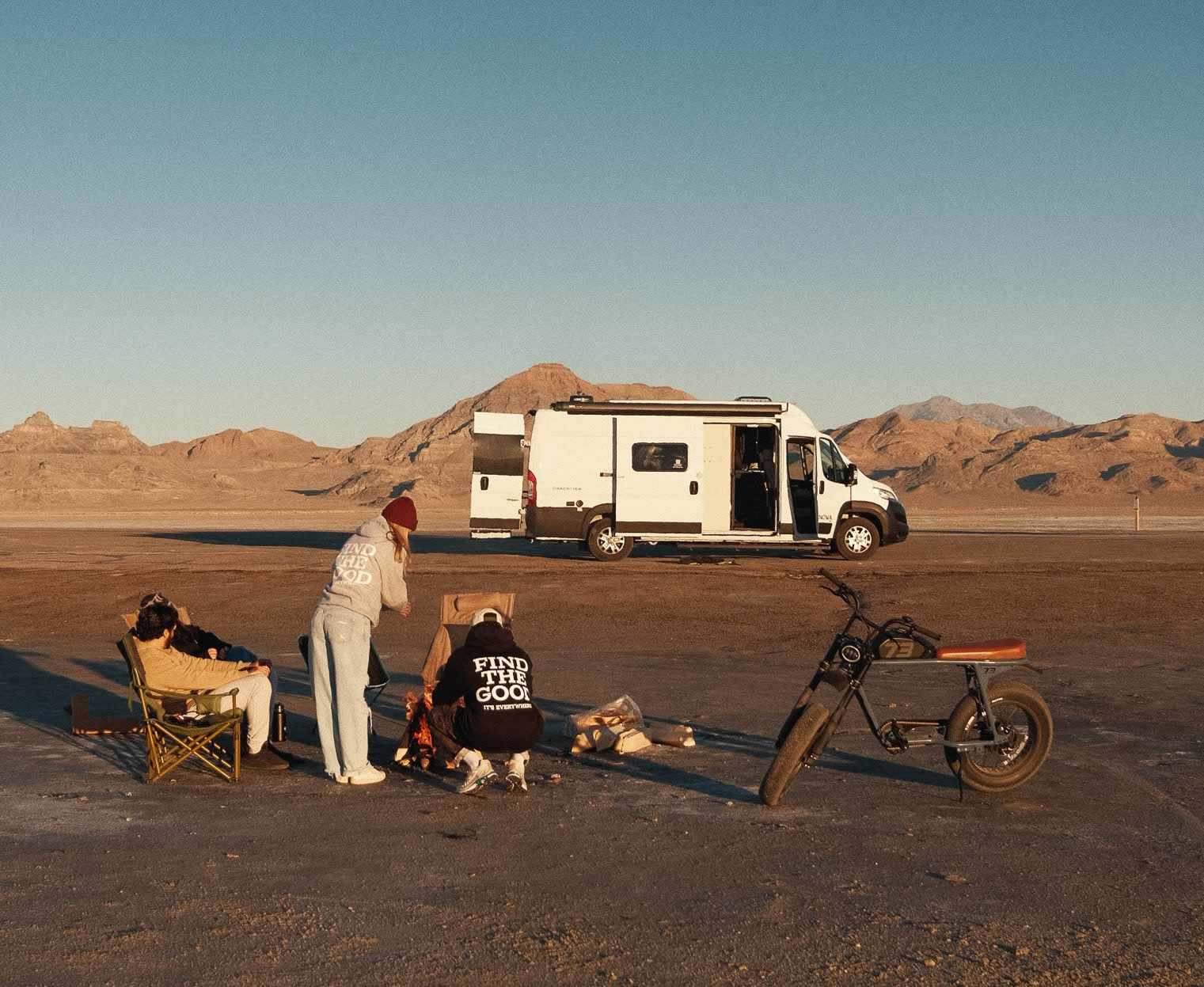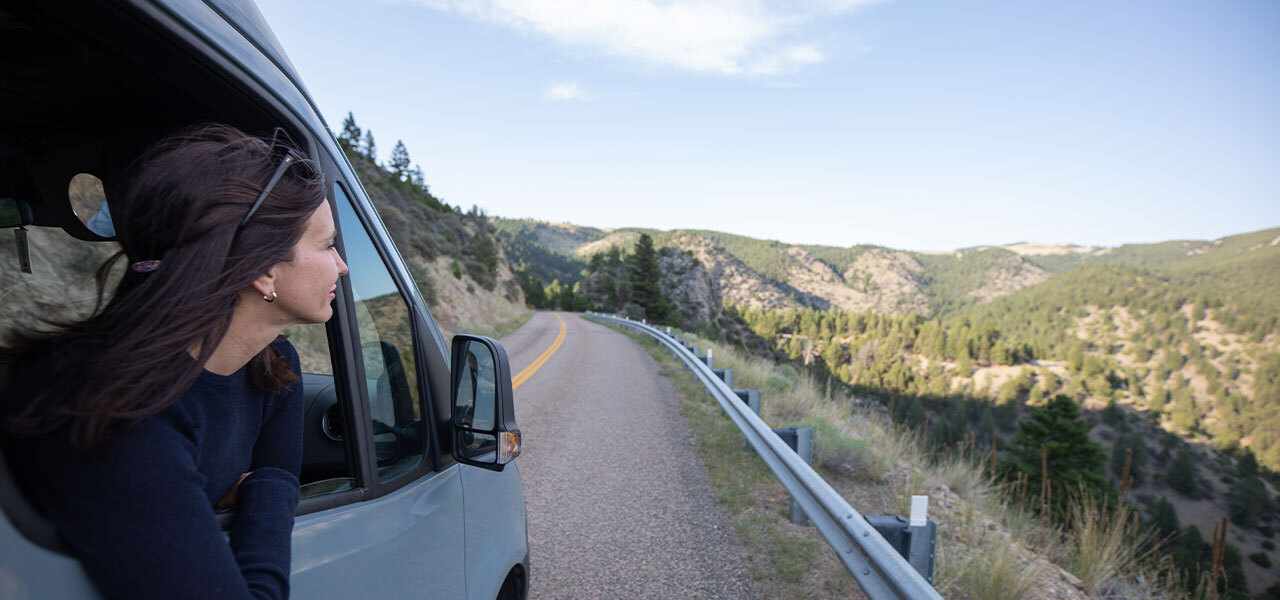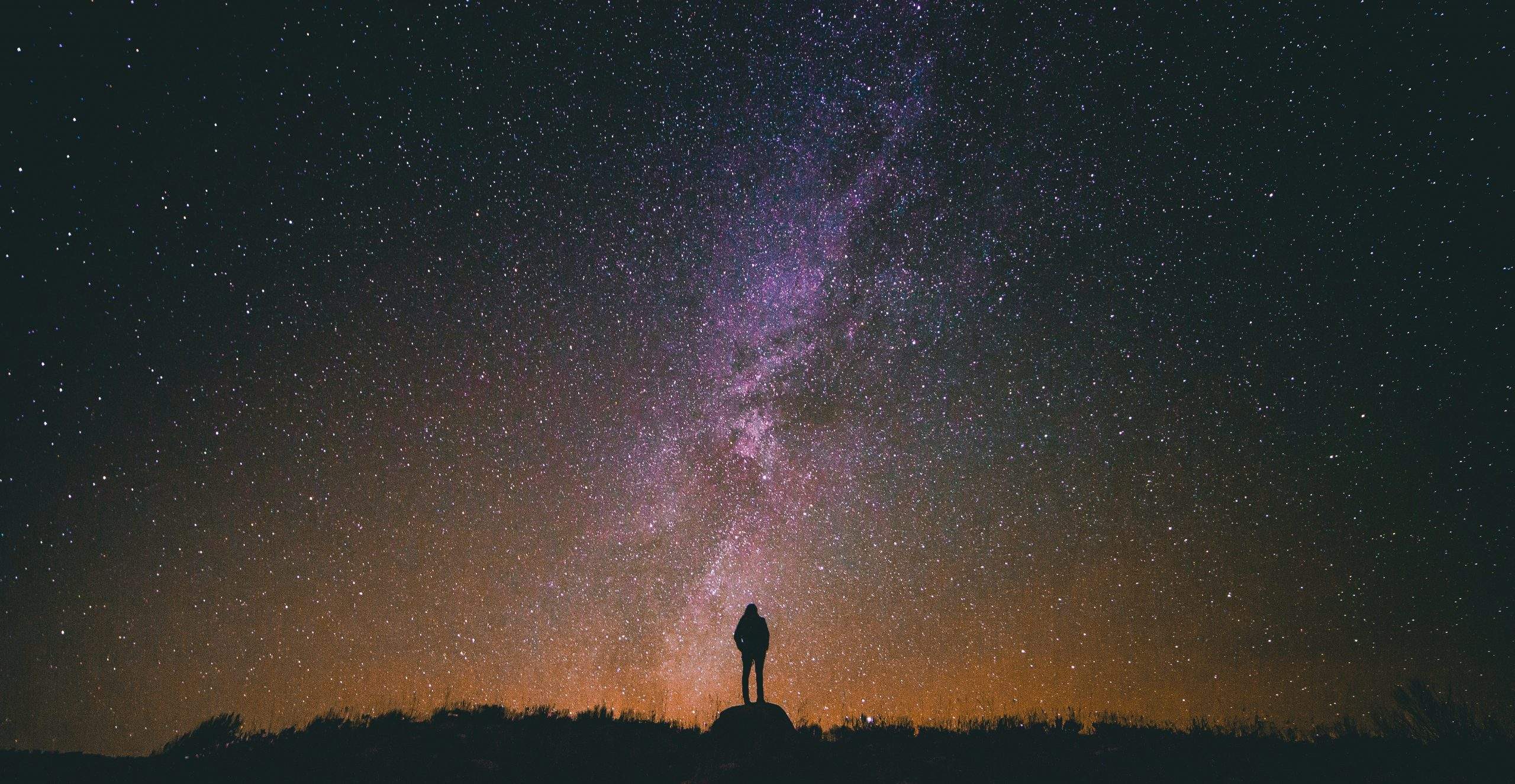Summer camping isn’t complete without stargazing. The sky might not get dark until later, but warm temperatures and no school for the kids means you can stay out much longer. Far away from city lights, your chances of seeing constellations, planets, and meteor showers are greater.
In fact, they’re pretty much guaranteed on cloudless nights at International Dark Sky places, campgrounds across the U.S., and elsewhere on public lands, which are ideal settings for throwing a star party from an RV, campervan, or travel trailer this summer.
To help you plan a camping trip around the cosmos, we’ve put together a guide to stargazing this summer with astronomy events, constellations visible this time of year, and rigs best for catching a shooting star. Grab a chair, tilt your head upwards, and enjoy the dazzling show.
RVs For Rent Near You
Astronomy Events in Summer 2024
Earth At Aphelion
When: 1:06 AM EDT on July 5
Fireworks one day, a cosmic event the next. On this day, Earth will be farthest from the sun that it is all year—by precisely 152 million kilometers. Experts say that sunlight on Earth will be less than it is at perihelion, but counterintuitively, warmer than when the sun is closer in January.
Perseid Meteor Shower
When: August 11 to August 13
Tune in to see about 50 to 100 shooting stars per hour, according to NASA. The show will peak the night of August 12 after the moon sets at midnight. Stay up late for optimal viewing conditions through the dawn of August 13. The Perseids, caused by the comet 109P/Swift-Tuttle, is about 2.5 times the size of the comet that caused the dinosaur extinction.
Partial Lunar Eclipse
When: 10:12 PM EDT on September 17
A few days before the last day of summer, viewers in the U.S. will see a shallow partial lunar eclipse overnight, when a portion of the moon will pass through Earth’s shadow. Peak visibility is 10:44 PM EDT to 11:17 PM EDT. If you spot a steady golden light near the moon, that’s Saturn!
Full Moons
-Friday, June 21 at 9:08 p.m. EDT: Strawberry Moon
-Sunday, July 21 at 6:17 a.m. ED: Buck Moon
-Monday, Aug. 19 at 2:26 p.m. EDT: Sturgeon Moon
-Tuesday, Sept. 17 at 10:34 p.m. EDT: Corn Moon
Constellations To Look For This Summer
We’ve identified a few of the more obvious constellations that you can see during the summer months, but what you see will depend on where you’re located. Use a more detailed app like Star Walk, Sky Safari 7, or NASA’s very own app for star knowledge.
-Most exciting of all is a distance variable star called T Coronae Borealis, which astronomers predict will become visible without telescopes sometime in summer 2024
-The Summer Triangle: Made up of three bright stars—Vega in Lyra, Deneb in Cygnus, and Altair in Aquila—they form a right triangle that points south
-Scorpius: Three bright stars resemble the head of a scorpion, and one bright reddish star resembles its tail, visible low in the south
-The Big Digger or Ursa Minor: Hangs from its handle in the northwest, it can help you find north
-Sagittarius: Find it in the southeast
-Hercules: One of the largest in the night sky, it’ll hang out in the northern hemisphere
Our Favorite Rentals For Stargazing
1. This RAM Promaster with a rooftop deck is ready for stargazing leaves from Seattle.
2. Pop the top of this Winnebago Solis in Oakland for a peek at the stars.
3. This Scamp in Sunderland, Vermont has a back window big enough for astrology fanatics.
4. This little towable Airstream in Austin, Texas has plenty of windows for night sky viewing.
5. Climb up into the rooftop tent of this Orlando, Florida-based Jeep Wrangler.
6. Not many rentals have a moonroof, but this one in Englewood, Colorado does.
>>>Check out this page we put together to see all the stargazing-ready RVs for rent near you!
As you plan your summer travels, don’t forget to spend at least one night curled under a blanket looking up at the stars. Whether it’s the wonder of discovering distant galaxies or the simple joy of lying back and pondering the vastness of the universe, summer’s night sky will be a source of inspiration and curiosity for those of us who take the time to ponder space.








